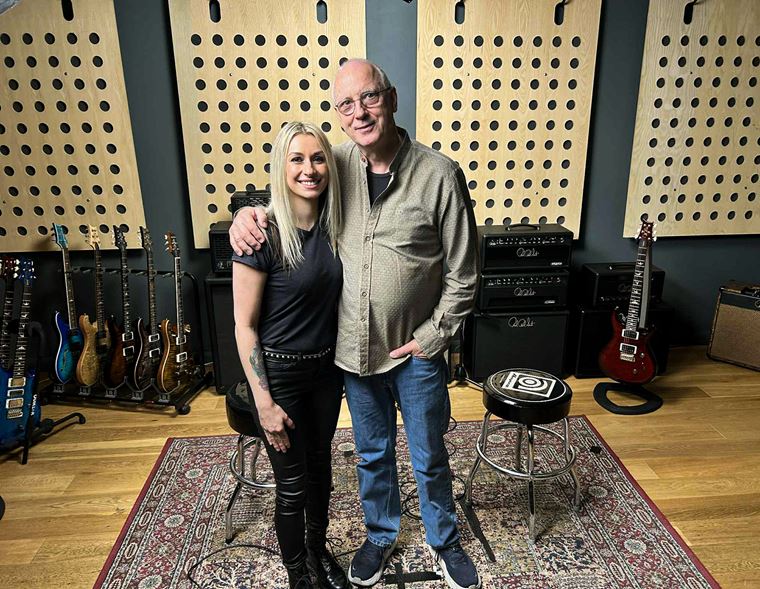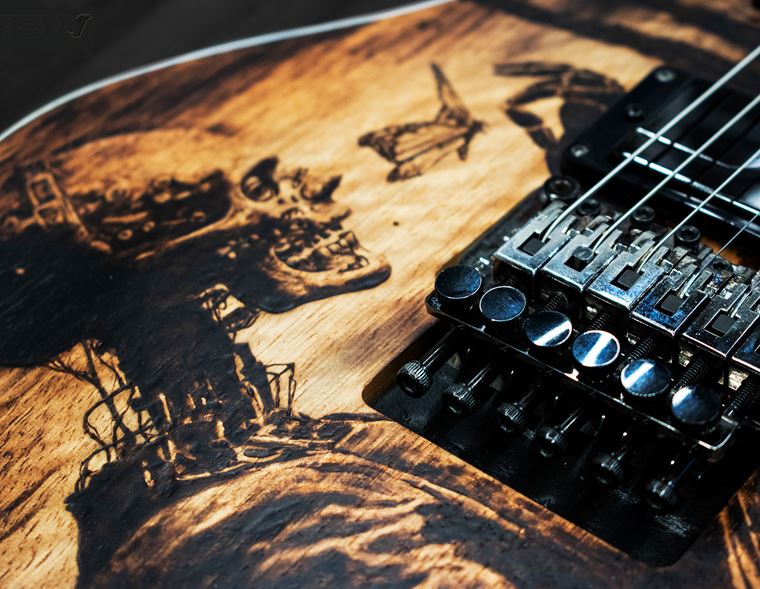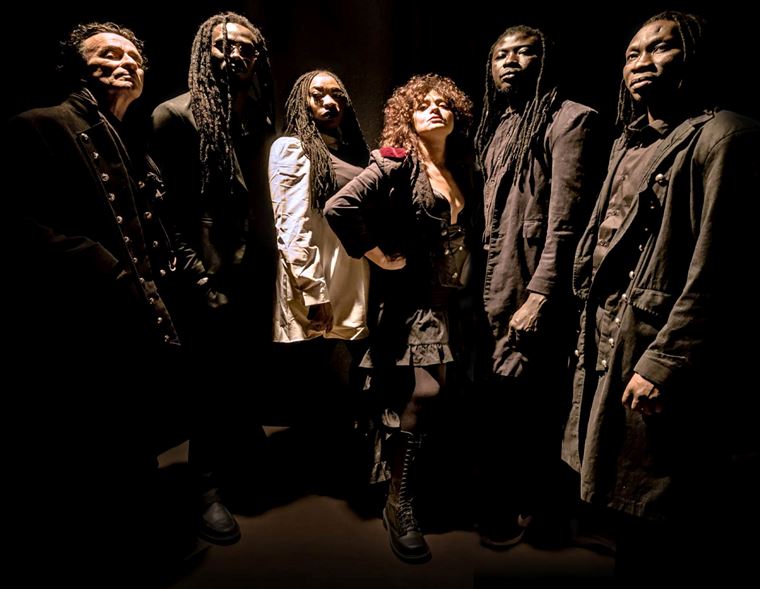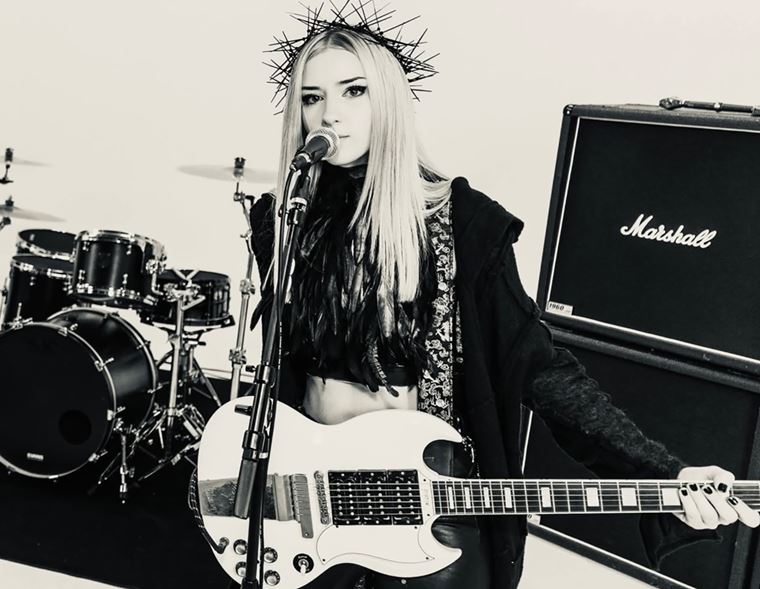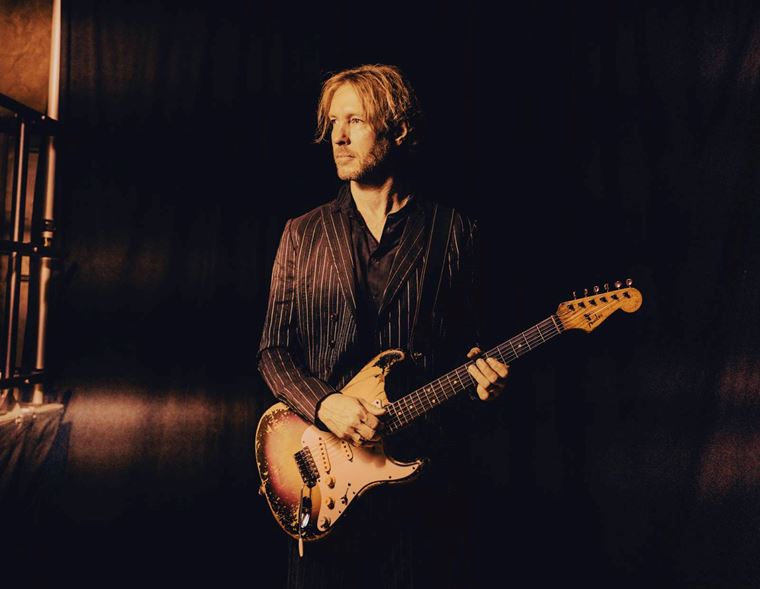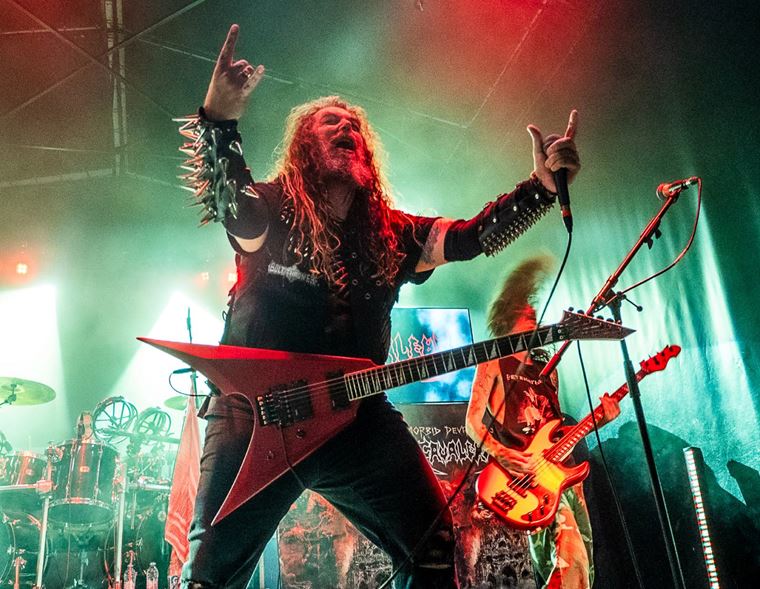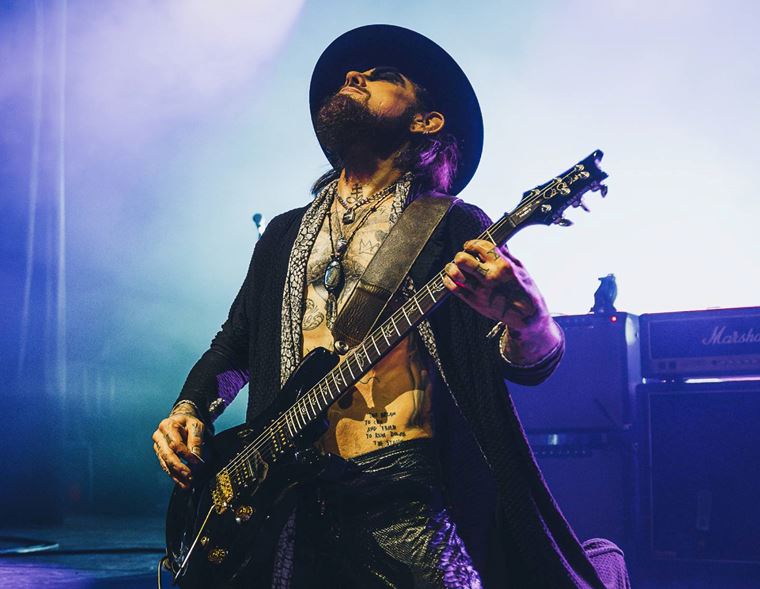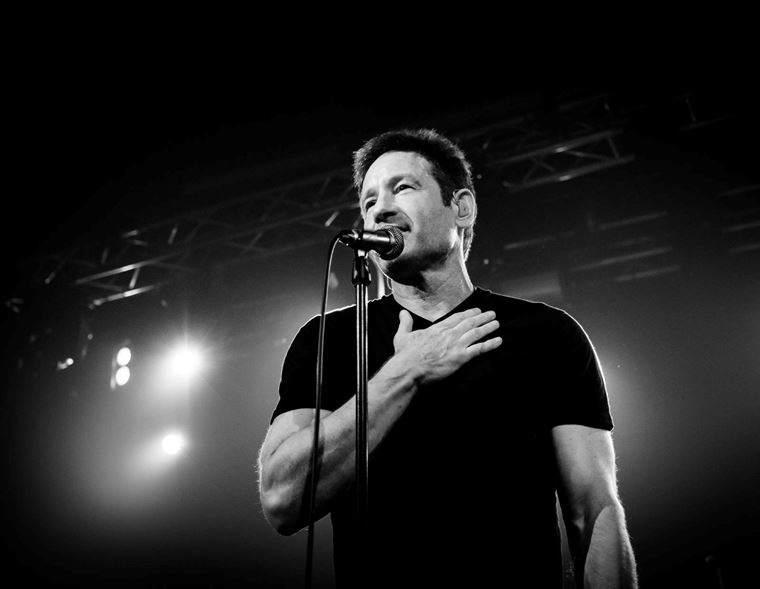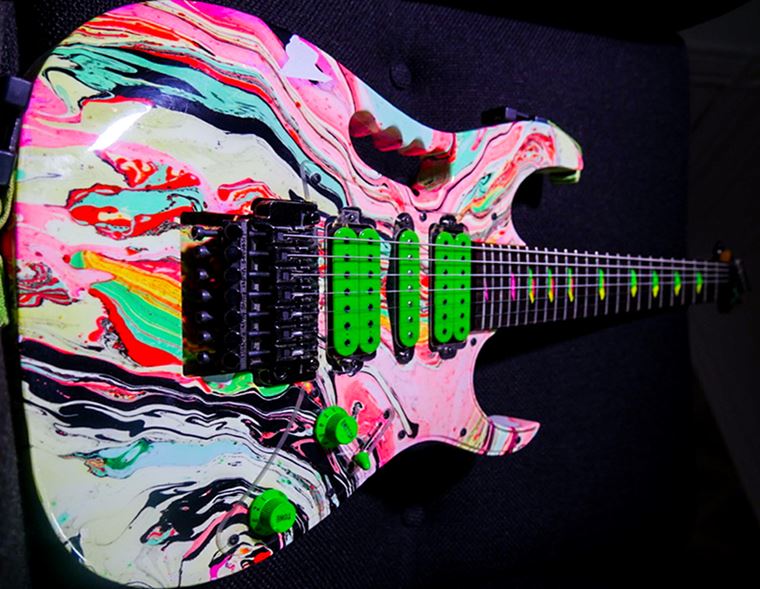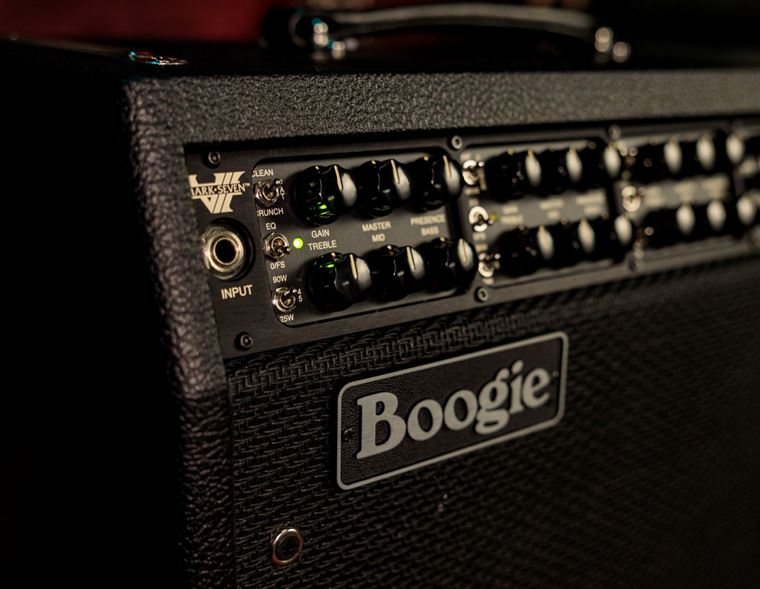Jared James Nichols on Broken Bones, Les Paul P90 Tones and Blues Power!
Jared James Nichols is a force of nature. With a personality as huge as his guitar sound, he brings enthusiasm and vibe to every conversation we’ve had in the past. Our recent chat about his forthcoming self-titled record was no different. Jared’s a true guitar hero: in person, he’s like a super-friendly mix between Thor and Zakk Wylde, and on record, he’s one of the pre-eminent guitar slayers of our age. There’s passion for days in every lick, riff and vocal, and this new album is probably the closest he’s yet gotten to capturing the molten hot energy and atmosphere of his live shows.
Jared has been a friend ot guitarguitar for a while now, and every excuse for a chat is cause for excitement! We joined Jared on Zoom from his home in Nashville very recently to discuss the new album, and also to chat - of course - about guitars! From signature Epiphone guitars that take equal billing to his vintage Gibsons, to his right hand picking techniques, we went in-deep. All the way along, Jared was a hoot to talk to, and as usual, we left the conversation feeling buzzed and motivated. What a guy!
So, read on below in this fully transcribed interview, where we begin with a recent injury which, to a lesser person would’ve meant a huge problem. As we found, Jared - quite like Steve Vai when we spoke back in January - is not one to let mere physical hardships get between them and their guitars…
Jared James Nichols Interview
guitarguitar: So it's always good to speak to you again. I have my little question sheet here, so we'll see how much we get through, as we go through the time. You in Nashville today?
Jared James Nichols: Yeah, I'm living in Nashville. I've been here for about three years. Before, I was in LA but I like Nashville. It's a guitar town. It really is.
GG: Yeah, it's a perfect place for you, then!
JJN: Oh, hell, yeah, absolutely.
GG: Loving it!. So, we have your new record to discuss today, but the first thing I want to talk to you about before we even get to the music is the fact that you recently broke your arm!
JJN: Yes.
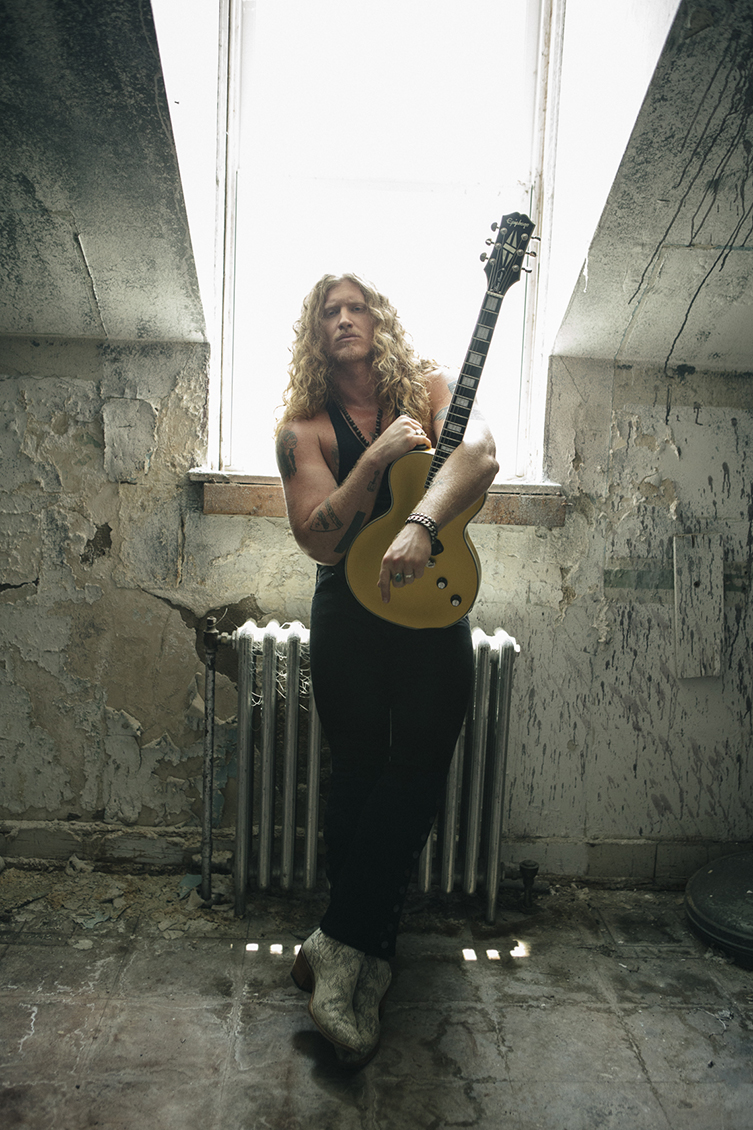
(Pic: David McClister)
GG: What happened?
JJN: It's good now, brother. We're good, but…so I was on tour. Shoot, it was a little over a year ago. I was on tour with some good friends of mine, Blackstone Cherry, who obviously do pretty well over by you. We were in Florida and I remember for a few days before, I had like a little bit of pain in my elbow.
And I'm thinking to myself, you know, from exercising, I was like, did I mess it up? That morning, I was in the gym and I remember it was really bad. And I was like, Oh, you know, this hurts. So we play the show in Florida, I get off stage and I go and I have, basically it's a guitar head case with a handle on the top. I go to pick it up like this, right?
So, as I pick it up, I hear (popping noise) and I went, what was that? Thinking that maybe I popped my elbow right? I went to my tour manager and said, ‘something just happened to my arm. I don't know what just happened!’ So, long story short, I chipped a little piece of the bone off. I had stress fractures on the bone like little serrated edges and one chipped off, which caused me to ultimately break it. It wasn't as if I broke it like ‘snapped’.
It was like a chip came off. But that was even worse because when we went to the E.R., they took an x-ray and they went, ‘yeah, the bone chipped’. And I'm like, okay, just put a sling on it. I need to go play. And they said, We can't. The bone is off. We need to have an emergency surgery to fix it.
Wow. So there I was in Florida, still in my stage clothes, and I'm like, holy shit, here we go. And I've cut down my arm. I have a plate where they reattached it with screws. Now I'm like, metal, I'm Iron Man, Black Sabbath stuff, but I'm good! It took a long time to heal and it's finally starting to wake up again where it got cut because it cut through the muscle and everything.
And thankfully it didn't affect my playing. It didn't. I didn't have to alter anything, really. What a scare! What a weird, weird day.
GG: Oh, that's some story! So, you play right handed and it was your right arm that got injured. So is it one of those ones where you just made sure that your right arm doesn't move much and then otherwise your fingers are all right?
JJN: Yeah. So the one thing that was a little weird was, you know, there's so many nerves coming down your arm, down the side of my hand. For a long time, I was like, man, it's still kind of tingling. And I had a lot of feeling lost in the elbow. So right away when I got out of surgery, I said, ‘give me a guitar’. I put a guitar in my hands and I was able to move my fingers still. And I was like, Thank God.
“Sometimes, when you’re in a situation where you feel like you’re backed up against the wall, it makes you punch harder. You know what I mean?”
So the only thing I really had to adjust was when I was standing up, I adjusted the strap length. I put it a little higher because when it was lower, and I know it sounds really funny, but I was putting a lot of weight on it. When I put it a little higher, I was like, Okay, I can keep my arm more still, like you said. So I did that and that helped. But thankfully, man, that was the extent of it.
It happened on October 16th of last year. I was back on stage two weeks later playing. I wasn’t very mobile though. I was just standing, you know, this arm was (mimes his arm stuck in a motionless playing position). And then I even did a big gig on New Year's Eve. I went out and played and it felt fine. It was cool.
GG: You're obviously built from stronger stuff than most of us musicians! Awesome! I was wondering: so that happened last October, so is it fair to say that the recording of your new record all happened since the break?
JJN: Yeah, it was actually. That's a great question. I would say it was like a half and half thing when we did the first part. So, like we almost did like a litmus test to see whether this was going to work, because we recorded the record live to tape, straight up old school. No computers were harmed during the making of this record!
So we actually did a few songs before the break and the rest after. So I would say that it is a good indication that it was like, I wouldn't say half and half, I'd say 30/70. So like 30% before, and then 70 after. And I remember, though, you know, after the break, this sounds really strange, but after the break, it was like I was even more determined within myself to be fine and to be like, nope, I'm not going to let it mess me up. So the record, there's a lot of extra piss and vinegar, you know what I mean? A lot of ‘extra’.
GG: Hell yeah, yeah!
JJN: Going for it. And sometimes when you're in a situation where you're limited or you feel like you're backed up against the wall, it makes you punch harder. You know what I mean?
GG: I do. I do. That's an interesting point. One of the things I've always liked about your playing, and one thing that is more in evidence here than even before, is the energy and it's like I'm talking about energy in the notes, you know? I don’t mean fast paying, it's more like there’s a life force in the performances.
JJN: Totally. And also, I think one of the hard parts about this style, like let's just say for the ease of it all, like blues, rock, guitar playing, it can almost get very, like a cycle: like, you know, here's my Albert King licks, here's this lick, here's this lick, and I almost feel like it's ingrained in players to kind of play a certain way. And the one thing is like, it's so tried and true, you know, like pentatonics, blues scales and playing all this stuff. When I play it, I want it to feel fresh and I want to breathe my own life into it.
So when I started to think, especially right when I was, it was almost like when I was home, you know, kind of in lockdown. I was like, how do I reinvigorate my playing? What can I do? So what I started to do is, basically every time I picked up the guitar, I almost thought of it not as a guitar, as a voice. It was like, how do I make the most expressive versions of all of this? So really it came from that.
“When I pick up the guitar, the enthusiasm and trying to get my personality behind every note, that’s what’s important to me”
It was like, I just wanted to stop having guitar, be boring, you know? Playing the same old licks all the time. I wanted to approach everything with a little bit of an angle where it was like, You know what? I might have played this a hundred times, a thousand times before, but I'm going to hit it from this angle and I'm going to do something different.
So when I pick up the guitar, yeah, the enthusiasm and trying to get my personality behind every note, that's what's important to me. It's like, I know I'm not the fastest player. I don’t even use a pick. I'm like, man, it's all about the tone. It's all about the vibrato. For me, it's all about the bends and the enthusiasm.
GG: Mm hmm, yeah! You've touched on some things I definitely want to go into further, but one thing - and I don't know whether this is the correct term for it - but I would certainly say an addition to notes, one of the things I really like about your playing is the sonics, it's things like I hear the hand sliding up the strings, the handling noise, stuff like that. I hear that you know, all the little bits of drama that you include.
JJN: Oh yeah.
GG: Things that can’t really be written down in the notation, you know? Would you say those things are as much about your personality as the decision to go from a D to an F sharp or whatever?
JJN: Yes, 1,000,000%. I couldn't say it better myself. And with that, too, you know, for me when I discovered the bluesy side of rock playing and then got really into blues, it was all about personalities, it was all about you know, each player could play the same exact thing or do a slide like, you know, Stevie does a slide down the neck or whoever, and it sounds like them, It's almost like they're breathing.
GG: Yeah!
JJN: So for me, when I think about blues guitar playing and my favourite guitar players, that's what I hear. They're expressing themselves through the instrument. So I'm so into that too, though, and especially since I play with my fingers, like all of the noises and all of the nuance-y stuff, it's as important to me as the notes, you know what I mean? Doing a slide down or how my hands kind of strike the strings before hitting the lick. You know what I mean? All part of it.
GG: Yeah! Yes, good! And I'm going to develop this part of the conversation over what you just said, that you can tell your favourite players from the little things that they do. You know what you reminded me of with that? Gimme me all your Lovin’ by ZZ Top, right? It starts off , you get one line of the vocal and then you just get that one amazing slide, that zap on the guitar.
JJN: Wow.
GG: That's the greatest note that has ever been played on an electric guitar. And whenever I try to play it, it doesn't sound right, you know?
JJN: Yes. And it's like, yeah, we could probably sit here and talk about a ton of those things. But it's even like, let's stick with Z.Z top. When you hear Sharp Dressed Man, you know the way that it's like: it's the things you can't teach. It's what comes out in different people's playing.
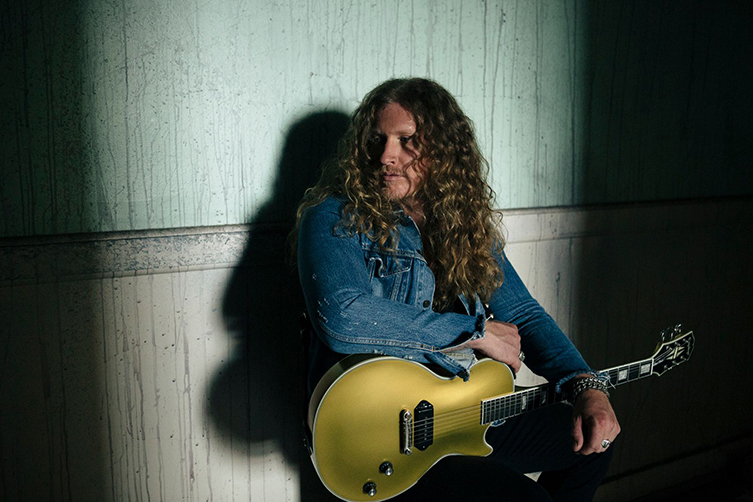
GG: Totally! It’s intrinsic to them. So yeah, I'm really interested in the fingerstyle thing because whenever I listen to some of your music, I always spend half an hour afterwards and give the fingerstyle another go for myself. So I wondered, I haven't looked too far into what you actually do. Is it like thumb and first finger?
JJN: Yes. So, my thumb basically is my down stroke. And then it'd be first finger, middle finger, and then even ring finger sometimes. So basically if I'm alternate picking, if I wanted to do that, I would use the thumb and index. Triplets, you know, one, two, three. And I can almost banjo roll like that, you know, the triplets.
GG: Right! I'm sure you've been asked this particular question so often, so my apologies, but in context, there’s the flamenco style with this (mimes a four finger rasgueado), and then you got bluegrass or Merle Travis, so where did the technique of your own fingerpicking style stem from?
JJN: I got to be honest. I'm a lefty. So, when I picked up the guitar originally, I wanted to hold it like a lefty would. And then when I got my first guitar at the store, it came with the lesson and the instructor goes, ‘Dude, flip it’. So I hold it like this (mimes a guitar in a left-handed position). And the immediate thing that I noticed is he handed me a pick and I was like, okay, maybe it just doesn't feel natural because I'm just starting with it. But over time, like six months go by, and I'm still messing with this pick and I can't really get it. A year goes by and I'm like, ‘man, I just really don't like this’. I don't like the way I play with the pick. I always like feeling my fingers hit the strings. So my fingerstyle started as a guy with a pick.
And then I remember specifically I was at a gig and I had a pick, and I was like, ‘Fuck it, I'm not going to play with it’. Let me just try it out right? And what I immediately noticed was I was way more honed in on what I was doing because I had to feel everything.
“I got to jam with Steve Vai and I remember being like, ‘All right, I gotta hold my own up here in my own fingerstyle’, you know? He would start to do his thing and I’m like, ‘Jesus! How do I do this?”
It was like I could feel each string and the tension of each string. So, my fingerstyle sound or my technique, rather, developed out of the natural way that I felt the guitar. It wasn't like: I didn't look at books, you know, for classical. But I looked at bluegrass and I looked at that stuff and I was like, How do they do it? Whenever I'd try it, I'd be like, Oh yeah, that doesn't feel right. Even like, Chet Atkins fingerstyle where you have alternate bass. So my style basically developed to where my hand feels good at this point of the bridge; my thumb feels good when I strike it here: like, it just naturally developed.
And also, man, I mean, at this point, I was working on it 8 to 10 hours a day. So, you know, I'm sitting there for years developing this fingerstyle technique just by what feels right and then it became kind of the way that I play fingerstyle.
GG: Good show! So I was going to ask, because you touched on it earlier, about how it's kind of impossible to be as fast on the fretboard with your fingers. So you kind of accept that, right?
JJN: Yeah.
GG: Are there any situations where the fingerstyle technique has held you back from an idea that you haven't been able to execute? And, thinking of your left-handedness, do you feel like you had any certain advantages or any certain disadvantages by having your dominant hand on the fretboard?
JJN: Great questions, dude. So okay, the first thing: has the fingerstyle limited me? The one thing…I want to say it hasn't, because of the music I love and the music I’ve always pursued. Like, I love metal, I love it, I love, you know, I love thrash, I love old school, I love Pantera, I love all that shit.
But as a guitar player, I never truly was like, Okay, I'm going to try and play, you know, the Art of Shredding or I'm not going to play, you know, Primal Concrete Sledge. But, with my fingerstyle, when I would play, you know, Mountain and Cream and all that classic shit, I was like, Oh, I can get through this.
When it comes to writing, a lot of times maybe I have an idea that's really fast, you know, something that's like (hums a fast riff). And I can't literally go (similar noise but miming playing with thumb). So instead, I've always adapted everything I do to kind of work within my parameters.
“Whether it was Old Glory or Gold Glory, they spoke to me in a way that I didn’t care if I was on a stage with Zakk or Bonamassa and he’s playing a Burst. It’s like: I’m going to hold my own with this guitar because I’m confident in what it is and in myself”
I wouldn't say it's held me back, but it has forced me to play different things, like to play in a different way or to try and look at the fretboard and the string setup differently. Because, you know, I've got to jam with Steve Vai and I remember being like, ‘All right, I got to hold my own up here in my own fingerstyle’, you know? He would start to do his thing and I'm like, ‘Jesus, how do I do this?’ So I'd have to go into my kind of toolbox and be like, What can I do? You know what I mean?
And then going into the second bit of your question: it's really hard because, you know, when I think about that, it's like, with my left hand, I do think there is something about that, that kind of gives me an advantage. What I noticed, even when I first picked up the guitar, like I didn't know anything, like everybody, right? I noticed that I could put my fingers on the frets right away. And then I was like, Jared, make sure you use, you know, the side tip of your finger right behind the fret, right? And I noticed that that felt really comfortable.
I would always say, I think that lends to the bending and vibrato, especially because that's what I really love. I really got on with that. Not quickly, because it took a long time to work it, but once I figured out the mechanics, I was like, Oh yeah, I totally get that, you know what I mean? It wasn't as if it was like, ‘How do they make that vibrato?’ I would look at it and I’d know with my hands what to do: put my thumb on the neck, you know, using fingers behind. So I do think that did give me some sort of advantage or if not an advantage, a different point of view that helped me kind of get there quicker.
GG: Okay. Okay, interesting. Now, I asked the same question to Billy Corgan a few years ago from the Smashing Pumpkins, because he's another lefty who plays right handed. I’m the same too, and my point of view is that I think it gave us a good, unfair advantage on accuracy of bends, dexterity, speed and so on. Billy just said, ‘I think it makes me a poorer rhythm player’, haha!
JJN: You're like, Come on, man!
GG: He’s such an exceptional rhythm player as well.
JJN: Yeah, I'd say so!
Jared James Nichols New Record
GG: So maybe it's like both then. Anyway, let’s talk about your new album! This is your third solo album but this one has your name as the title. Any title for a record is a statement, so why is one your self-titled record?
JJN: Great question! I keep saying that, but these are great questions. So when I did this record, people used to come up to me at shows and say, ‘Dude, that was awesome. I love that show. You sound so much better live than on your records’. And I go, Okay, okay. Thank you? You know, it always haunted me. It was like a haunting feeling because I would always sit there and go, Fuck, how do I make this more like that, how do I translate it?
When it was time to wrap my head around making a record, I had a good batch of songs, like probably 20 songs that I'd written where I was like, these rock. I brought them to a producer named Eddie Spear, an English guy who lives in Nashville. He's famous for working with everyone from the Rival Sons to Chris Stapleton to all these amazing artists, Jack White and all this stuff.
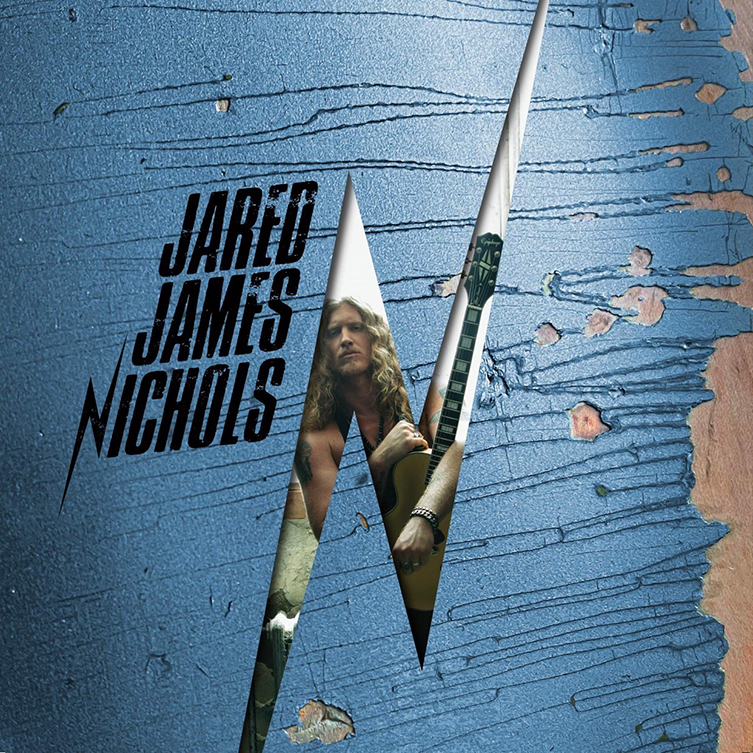
So anyways, he's like me: he's kind of crazy in a way that he loves to take risks. As a producer, his ethos is like, fuck it, let's go. You know, like, let's take the things that you think and push them further. So he came to watch us play live, and I said to him in the initial conversation, I want a record that feels like it does when I play live. Because when I play live, I feel like that's me, you know? I feel like that's truly where I can just take all the walls down and I can just play, and it feels right.
So he comes to watch us live and he goes, ‘Yeah, we're going to make a record. We're going to cut it live to tape. We're going to go in the studio. You guys are going to set up as if you're playing a live show, and then we're going to overdub your vocal on top of it. You're going to play all the solos with the band on the floor, all the tones, everything is going to happen on the floor, and then you're just going to sing over it. We're not going to use a computer, nothing’. So I'm sitting there and I'm like, is this guy real? (laughs) I'm literally looking up right now: I have the master tapes here in this room that we're in, you know.
“I am a firm believer that if you practise, if you are really passionate and love what you do, then it does not matter what’s on the headstock, It doesn’t matter what shape the guitar is. Nothing matters! All that matters is the music that’s inside of you”
So with this being a self-titled record, I wanted to say that like, yes, I released music before this, and when the label was asking me, what are you going to call the record? I said, I want it to be self-titled because I feel like I finally arrived. I found the sonics, I found my voice, of where I want to go musically. I feel like I found it on this record. You know, anyone that's going to listen to this record and you can compare it to my other releases, I think you're going to notice a big difference with the sonics.
And honestly, like you said, like the enthusiasm, the attitude, because it is alive in the room and you feel it, you almost feel like you're there. I mean, man, there's points on this record where you feel like the amp is going to blow up and it was like, I'm standing in front of the thing, just trying to coax it! (laughs)
So, that's why I went self-titled because this record is me. I feel like I've arrived at this point as an artist and from here it's building off this.
GG: Awesome answer! And it's, I mean, that was the first thing we mentioned - the energy - and that's obviously something I've picked up on. So yeah, so apart from the vocals, everything is tracked at the same time. I was going to ask you about when it came time to do a solo, for example, whether you were one of those people who would prefer to go with the honesty or the truth of the first take, or whether you're one of those people who would go over and over until it's perfect. But you kind of answered that by saying that you were tracking it all live. So I suppose the question then is, generally speaking, how many times did you guys track each song before you were happy?
JJN: So, what we did before we went in was we did ten days, like 12 hours a day of pre-production, right? We ripped the songs all the way down to the lyrics and the melody and basically, all right, he's the drummer, he's the bass player, I'm the guitar player: how do we make this fucking thing larger-than-life awesome? So we did that with Eddie, and we walked into the studio so primed up, man, like, you know, like, we're ready!
What we did is, we had the mantra that it was like three takes. We're going to get it in three takes. With the solos, especially, I mapped out my rhythm parts, and I thought about them because, you know, I'm going to sing over this stuff! In the beginning I was doing scratch vocals and I wanted to make sure that everything felt right so that the rhythms were basically as they were, but with the solos, any lead stuff was totally organic on the spot.
I tried to think where I wanted to take it. Basically each take was different. So we did 2 to 3 takes per song and that was it. And you know, it wasn't like Eddie was in there cutting tape. It was usually: the first one we get the rust off and we'd be like, okay, now we know what we're doing. Usually number two for us was good because we were just fucking ready. We were ready to play.
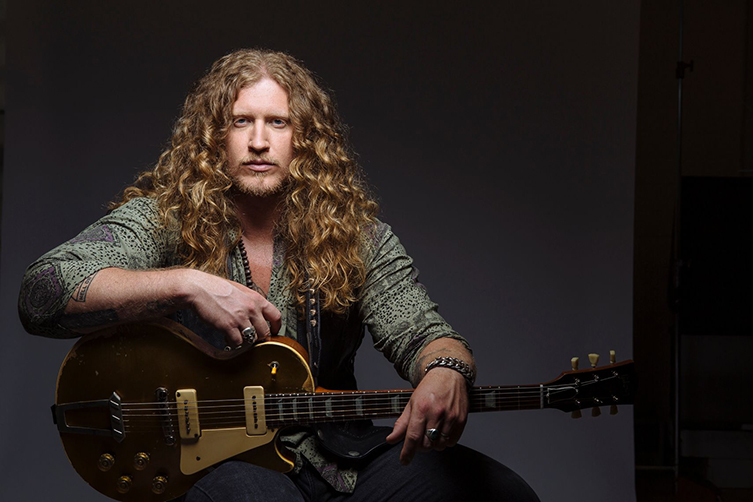
GG: I love that whenever there's a good conversation with guitar players, I always find that my questions are already preempted by your previous answers! What I was going to ask was: when you're writing your material, do you have to pay consideration to the fact that, whatever riffs or parts or rhythms that you're writing, you are eventually going to have to be singing over it at the same time? Does that affect or change your writing?
JJN: It does, it really does. Because in the past, I call them couch riffs. I'll be lying on the couch playing, going do, do, do, do (mimes casually playing). And you lay there and you go, This is an awesome riff! This will be a great song. Then you're standing up, you're sweating, you're in the moment and you go, Man, what the hell was I thinking? (laughs)
And then another thing that I think about too, is like the confinement of a trio. How do I sound the biggest or the smallest, if it needs to be? How do we make this work? Within the confinements of three players? I can't write songs that have six guitar parts and have this, and then it goes into this. You know, I'm not going to be able to do that live and then, you know, I have to sing over these parts. So for me, it's very, very important that when I'm writing, I have a clear goal. It's like, you know, I've played enough shows now where I know what works and what doesn't. So sometimes when I'm writing something and it gets too much like, okay, hold on, I’ve got to almost clean the slate. Let's start over with this part, because what I find for me is the simplest parts done with the right execution are always best.
“I went self-titled because this record is me. I feel like I’ve arrived at this point as an artist and from here, it’s building off this point”
It's not necessarily about ‘keeping it simple, stupid’, but it's like keeping it straight to the point. And what I'm playing is going to complement what I'm singing and vice versa. What I'm singing is complementing what I'm playing because a lot of people have, like, musical ADHD (laughs), and I used to do it all the time, too! I'd be like, Okay, this song has 19 parts and it's like, yeah, that's cool, but it's a lot of stuff! So, now I try to write for the song and I think about it: what guitar part is going to sound great under this vocal? What vocal’s going to sound great on top of the guitar part, you know? And that's the way I approach it.
GG: Good, good. Excellent. Now, I've got lots of fun guitar questions. Just as sort of a segue into talking about guitars and gear, why don't we answer the question of what was your recording set up for this particular album and does that differ to your touring rig?
What Gear Does Jared James Nichols Use on Tour?
JJN: It's a little different. I use higher wattage amps when I'm touring. I use my Blackstar JJN-20, maybe I'll use one of those St James models which is a 50 watt, and I'll run those together. I'm usually running in stereo on the road. But what we did with this record is, I wanted to use higher wattage amps for more headroom, so I had a Blackstar Artisan 100, and then I also had a 69 Super Lead and I ran those two together, and Boy, All Mighty was that the sound? It was just so good.
So with that it gave me a lot more headroom. It gave me a lot more space because sometimes with lower wattage amps, it's like off - on. When you have these louder amps, you can really start to roll back the volume and the tone starts to sound like a violin, you know what I mean? You can get sustain, you get all that stuff, and that's where those amps really shine. So I had those two amps all the time.
The only other speaker we used was a Leslie. So we would plug the Leslie into that rig and then we would use whatever was coming out of there and it was so, so good. All of the reverbs were a natural reverb from a hallway. So if there's ever a reverb, it's from a hallway. We just put a speaker in the hallway. We had an old (Echoplex) EP-3, so Eddie was using that, the producer was using that in the room. And when I would take a solo, if you ever hear Delays, it's literally him with an EP-3, moving it.
And then as far as pedals go, I kept it really simple. I had a Klon, a silver Klon, that was basically always on in the rig. I have a Tube Screamer just like I've had it since I was like 14, it's like an old eighties tube screamer. I had an RMC wah wah. You know, RMC?
GG: Yup.
JJN: Then I had a blue Tycobrahe octavia pedal and that was the cool one. Oh, and one other thing was a funky vibe, like a Univibe The very typical standard blues rock set up.
What Guitar Does Jared James Nichols Use?
And then guitars, I kept it super simple. It's all Les Pauls I use my signature Gold Glory I would use that I used a 56 Les Paul Junior. I had Old Red, which is my 53 and the latest on a few tracks I got it in time was Dorothy, my 52. So, it's cool. It's all P-90s on the record, but all of those guitars have such unique sounds that when I tracked, I would think to myself, I'd be like, okay, like for instance, Goodtime Girl, this song on the record, I was like, this thing needs to be snappy. Let's use Gold Glory, because with the old guitars, the pickups are too weak, you know what I mean? They didn't have that punch, and I was like, get the new guitar in here! It's going to have that snap to it.
So we did a lot of stuff like that. We tailored the songs to the guitars and I think it was so cool. And I love the fact that I used real amps live to tape with a bunch of P-90 Les Pauls. Everything on there was a P-90.
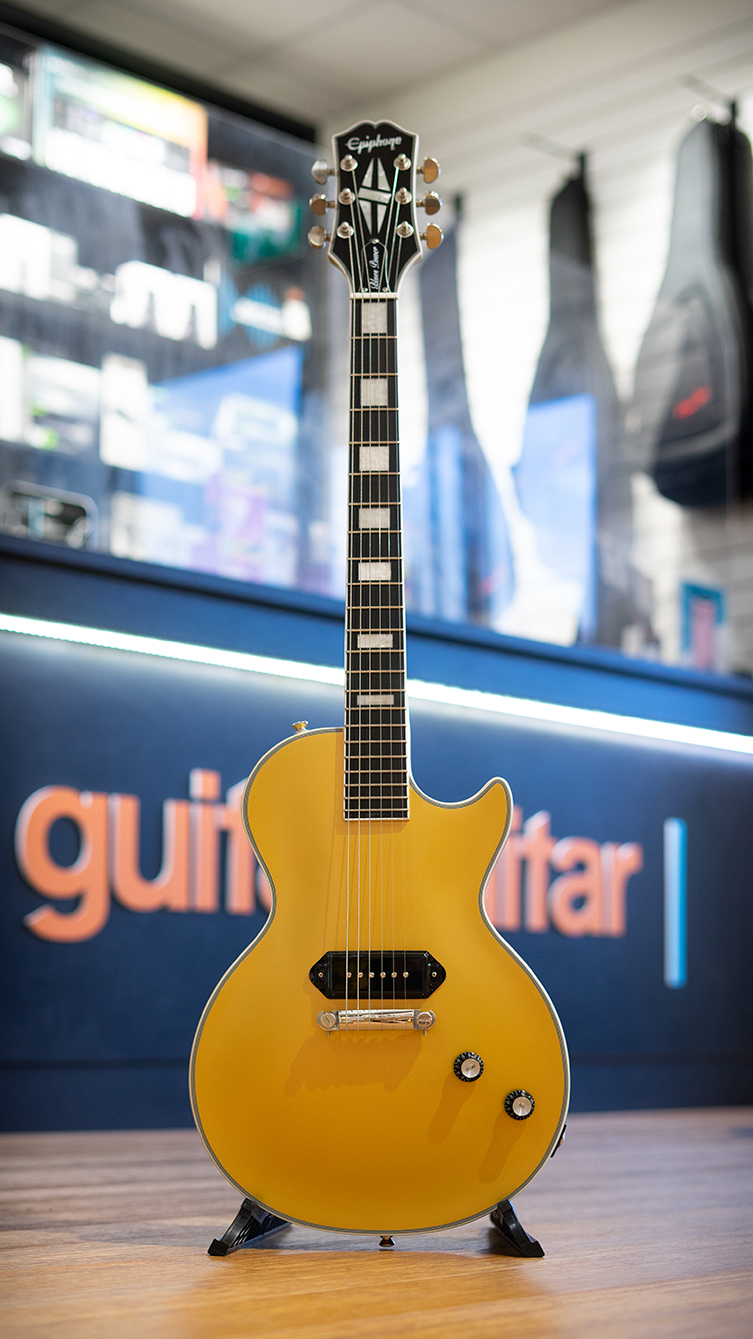
GG: That's so good! That's another nice example of you preempting one of my questions with that response! Yeah, we had a Gold Glory and the office the other and it was the first time I had my hands on one. The neck carve on it is absolutely brilliant, what a lovely thing to play! So what I wondered about was this situation. Because your Epiphone guitars are affordable. Most working players can, you know, can, can afford such a thing. A 52 Les Paul: no, they can't, you know? And so you have extremely expensive guitars, and very affordable. And it seems to me that you have a kind of equal attitude about it. You're not like a snob about anything, which is something I do want to get to in a second, because there's a lot that in this industry. But before that, I wonder if there's a situation where you would pick the Gibson guitars over the Epiphone and then such reasons for the Epiphone over the Gibson, but you’ve kind of touched on that just there.
JJN: Yeah, I'm definitely not a snob about it because I mean, I started my guitar journey just like everybody else does, man. I had the cheapest guitar and I made it work. I'm a firm believer that if the music's inside of you, you'll get it out. So, when I was approached to do the Epiphones, I was so excited because it was me basically going back to my younger self and saying, ‘Hey, man, you know those guitars that you always lusted over? It’s like, I'm going to be able to afford one of these’.
I was going to make one of those, and I was determined to make the best one I could, not only for myself, but for anyone that was going to buy it. So whether it was an Old Glory or a Gold Glory, those two guitars were very, very important to me. They spoke to me in a way that I didn't care if I was on stage with Zakk or Bonamassa and he's playing a Burst. It's like I'm going to hold my own with this guitar because I'm confident in what it is and in myself. So yes!
And then I'm obviously, man, I'm so fortunate to be able to play old guitars too, you know, old stuff that happens to be worth money. With my guitars, though, it's a little different. You know, I didn't I didn't buy them off of Reverb. I didn't, you know, go to the bank and take out $30,000 and, you know, whatever (laughs). The ‘52 was a gift, you know? So for me, it was like, Oh my God! And the ‘53 was a gift from my buddy at the Les Paul Forum, Charlie Daughtry.
So these guitars, they found me, if you know what I’m trying to say? And I feel like that's the truth to me about these guitars, whether it's an Epiphone or an old Les Paul: whatever it is, they have to speak to me. And all of these do.
GG: Brilliant! I love it. One of my colleagues was talking to you a while back and I can't remember what the context was, but I think what you said was something along the lines of: if you practise enough to be a good player, then you can totally play a more affordable guitar and you can still kill it on it.
JJN: I totally probably said that. Well, I probably said, you know, one thing I like to do when I meet players that, you know, no disrespect, but they're a little snooty or they say, ‘oh, I have a PRS blah, blah, blah’. Okay, that's great! Congratulations! I hope you love it. And then those people that'll see me play, I remember one guy: he was such a dick. I played and the tone was for me personally, it was great. I was on Gold Glory with my Blackstar. I had an awesome show and he came up to me after the show and he said: ‘Man, that would have sounded so much better if that was a Gibson guitar’. And I looked at him and, you know, I basically said: ‘So, if I would have covered up the headstock and I put ‘Gibson’ on there, then you would have believed me?’ It's the dumbest thing I'd ever heard anyone say, because it's almost like, if that's the way you view the world, man, I would hate to be you!
So I am a firm believer that if you practise, if you really are passionate and love what you do, then it does not matter what's on the headstock. It doesn't matter what shape the guitar is. Nothing matters. All that matters is the music that's inside of you. You're going to get it out. You know? And that's what it's all about because, shit, man, yeah, you could sit there all day and go: ‘Someday I'll have a Burst!’ Great! That doesn't make you a better player. What makes you a better player is the love you have for it and how much time you're willing to dedicate.
GG: I couldn't agree more. It's like: one day I hope you have the Burst, but in the meantime, get going! Get playing, you know?
JJN: In the meantime, create your thing with whatever you got, right? It's like sitting there with a house: ‘Man, someday, I want to live in a mansion’. It's like, Well, okay, you and everybody else, buddy (laughs), but we gotta do what we gotta do to get it, you know what I mean?
GG: Yeah, you know, actually, what's really interesting is that you've got somebody like myself who has worked at guitarguitar for 15 years. I’ve played all kinds of rare and vintage guitars, and it’s basically my life, right? So, you’d expect my ear to be pretty well trained and critical. And I listen to your records and I hear excellent guitar playing, but I can't tell you which part is the 60 year old guitar and which part is the guitar that came out of the factory last year.
JJN: I've even said to people: close your eyes, you know, when I'm holding the guitar, close your eyes and I'll play and it'll be an Epiphone. I'll be like, What do you think that was? And they're like, ‘Was that Dorothy?’ No, it's a fucking Epiphone. Dude, are you okay now? Is that okay? You know what I mean? It doesn't matter! What matters is you. And if you love it and if you feel it makes you inspired.
GG: That's perfect. That would be the best last line for me to transcribe but I do want to obviously say that your record isn't it's not out until next year?
JJN: January, January 13th.
GG: And will you be coming over the pond to play for us?
JJN: Absolutely. So what it sounds like we're doing… it's like all getting booked literally right now. So, it sounds like we’re going to come over for some festivals and I'll come over and I'll do some guitar stuff and then it sounds like we'll come over for a proper tour in late summer, early Fall. Which sucks because it's still far away, but well, I've been told, brother, that they're like, Hey man, they were talking about going over right away and they're like, We got to wait a little bit. We got to wait because a lot of people are getting cold feet and this, that and the other thing. So the best thing that we can do, we can put the record out and then we can get over there for some festivals. I can do my guitar thing, you know, I can go anywhere over there, but then bring the band over properly for the Fall.
But I'll be over for sure. I got to come back up to Glasgow, man. I want to come up to that fucking guitarguitar and get crazy.
GG: You gotta do it, man! The invite is open!
The great thing is, we just know Jared will be a man of his word and show up at the door one of these days! Until then, we don’t have long to wait until his self-titled record is released! Keep an eye on the official Jared James Nichols website for more details on that, and for up to date tour news and merch.
It’s always a huge pleasure to talk shop with Jared, and we thank him again for giving up his time for us. Thanks also go out to Peter Noble for putting us in touch. Thank you for reading this article! We now have a great many exclusive interviews available to read in our guitarguitar interviews section, so head over there for articles with Joe Bonamassa, Steve Vai, Joe Satriani and many more!


